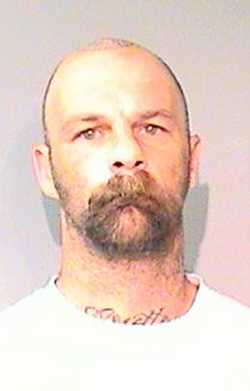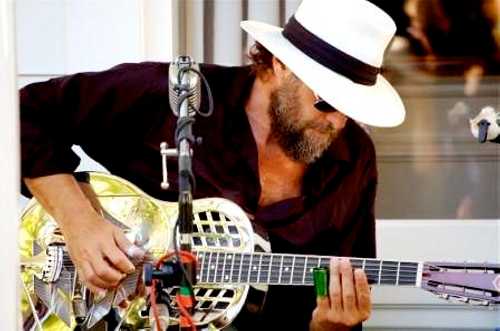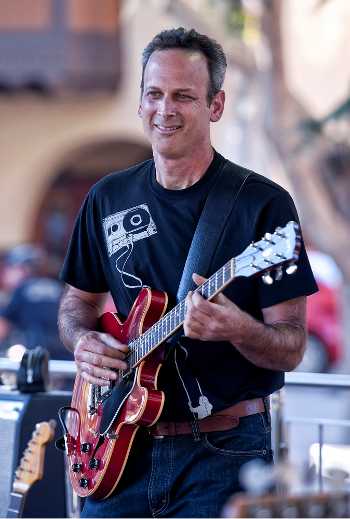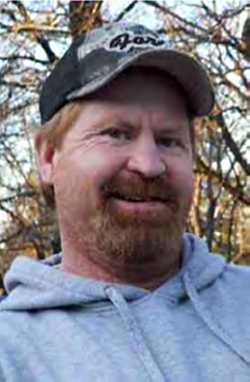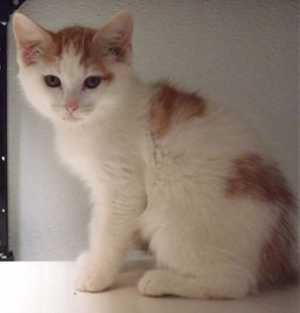LAKEPORT, Calif. – With their trial set for this fall, three Sonoma County Hells Angels Chapter members were in court on Tuesday with their attorneys, who argued that the case against them involving a 2011 fight should be dismissed due to delays and errors.
Josh Johnson, Nicolas Carrillo and Timothy Bianchi are set to go on trial this October for allegedly fighting with Michael Burns, a validated Vagos motorcycle gang member, and Kristopher Perkin on June 4, 2011, at a tattoo convention at Konocti Vista Casino in Lakeport.
They're charged with felony participation in a criminal street gang, and misdemeanor counts of disturbing the peace and battery. Bianchi also is charged with felony assault with a deadly weapon other than a firearm, and Johnson and Carrillo each face an additional misdemeanor battery count.
Johnson, Carrillo and Bianchi were accompanied by Carrillo's attorney, Michael Clough, and Jai Gohel, Bianchi's attorney. Gohel also made an appearance for Johnson, whose attorney, Patrick Ciocca, could not attend.
The attorneys filed a motion to have the felony charges in the case set aside, a motion opposed by Senior Deputy District Attorney Art Grothe.
Clough and Gohel argued to Judge Michael Lunas that there have been mistakes and a delay by the prosecution in turning over discovery materials, and as such a dismissal was appropriate, which they also stated in their filings for the appearance.
Some of the key materials of concern related to Sheriff Frank Rivero, who testified at the 2012 preliminary hearing about his involvement in the case – securing permission from the tribal gaming commission to get surveillance video from the casino and then transporting the DVD to the sheriff's office.
Specifically, Clough and Gohel faulted the District Attorney's Office for not disclosing materials related to the “Brady” determination on Rivero before the preliminary hearing.
“Brady” refers to the 50-year-old US Supreme Court case requiring prosecutors to disclose exculpatory materials to defendants in criminal cases, including information relating to credibility of peace officers involved in their cases.
District Attorney Don Anderson conducted an investigation and concluded that Rivero lied to investigators about his actions during a 2008 nonfatal shooting.
However, the final determination regarding those Brady materials had not been made until this past February, nearly a year after the preliminary hearing.
Earlier this year, once the determination had been made, during a hearing in the Hells Angels case Grothe presented the information to Judge David Herrick in chambers. Herrick ruled that the materials should be made available to the defendants but kept confidential until a further court order was given.
The two sides also disagree about the importance of Rivero's role in the case. Although he was called to testify at the preliminary hearing, and testified in a hearing earlier this year, the District Attorney's Office has said he's not a material witness, and that his testimony wasn't key in the case.
Grothe had attempted to have the preliminary hearing reopened this spring in order to allow the defense to cross examine Rivero on the Brady material not disclosed before the preliminary hearing, but retired Judge Arthur Mann ruled against his request.
Gohel also raised issues about the testimony at the preliminary hearing of Norm Taylor, formerly with Lakeport Police who now works for the Lake County Sheriff's Office.
Gohel said Taylor, who appeared as a prosecution expert on gangs, was involved in the incident on May 14, 2011, in which Rivero shut down the county's southern border. That was in response to what Gohel called a “phantom raid” of 150 Hells Angels members who Rivero believed were on their way to Lake County to fight with the Vagos, who had staked out downtown Lakeport that day.
“Frankly there was no real basis for that particular action,” said Gohel.
Clough said the case was a relatively simply one that had been turned into something much larger, with one of the men having had a $1 million bail set early in the case.
He questioned why more video evidence hadn't been preserved, and said if the charges were to be dismissed the District Attorney's Office can refile them and start over with less procedural issues.
“In this case in particular, it would be in the interest of justice not to create a situation in which the district attorney's failures at the preliminary hearing stage hang over the whole case like a cloud,” Clough said, adding that the issues the exist in the case could result in it being overturned on appeal.
He said the defense hasn't delayed the proceedings – that resulted from the wrangling between Rivero and District Attorney Don Anderson over the Brady matter.
Grothe said the defense had been supplied with two main files or documents to the defense.
“Nobody from our office was pulling any punches on what material was out there,” Grothe said.
One of the files was a redacted copy of materials dealing with what he called the “county line” incident on May 14, 2011, which Anderson had agreed to give the defense during a meeting early on in the case.
They would later provide the Brady materials once they were able to do so, Grothe said.
He said Rivero's testimony in the preliminary hearing didn't matter, adding the prosecution had put Rivero on the stand as a courtesy so the defense could “have a shot” at him.
The Brady materials would be provided by court order at the direction of Herrick, who found they could be potentially exculpatory. Being exculpatory, said Grothe, is a completely different animal than being considered material to a case.
Gohel said in the redacted copy of the county line incident there is no mention of Taylor, adding the document “did not disclose a lot of things,” including gang experts from agencies in other counties telling Rivero that his actions to shut down the county border were totally unconstitutional and would get him sued.
Gang experts from around the region were telling Rivero that there was no group of Hells Angels heading to Lake County, Gohel said, adding that Taylor “was assisting Sheriff Rivero in this farce.”
Clough suggested to the court that there had been a series of attempts by Rivero to create an incident in order to charge the Hells Angels with a crime.
“We have had clear errors in this case,” said Clough, alleging that discovery rules were violated.
He said that, in the interests of justice, the case should begin again. Rivero doesn't have to be brought in to testify, which Clough said makes more sense than continuing what has become “a pretty amazing drawn out proceeding.”
During the hearing Lunas disclosed that he had represented Taylor in a family law proceeding about eight or nine years ago.
“We've gone through three judges already,” said Grothe, referring to the fact that Herrick, along with judges Richard Martin and Andrew Blum, have all handled the case at various stages.
Lunas said he wasn't sure that it would impact the case and he didn't believe he had a conflict. Clough said the defense wasn't going to suggest that previous representation was grounds for recusal.
Grothe told the court that Taylor's level of involvement in the May 2011 incident was “very, very minimal.”
As to the defense's claims that Rivero orchestrated an incident to go after the Hells Angels, “The lack of credence I give that can hardly be overstated,” Grothe said.
Lunas scheduled a hearing on his ruling for how the case would proceed at 2:30 p.m. Friday, Aug. 30.
Email Elizabeth Larson at This email address is being protected from spambots. You need JavaScript enabled to view it. . Follow her on Twitter, @ERLarson, or Lake County News, @LakeCoNews.
